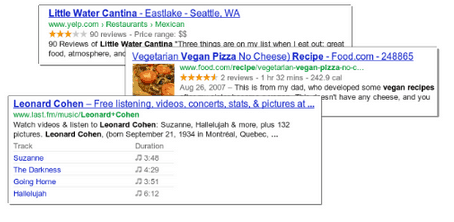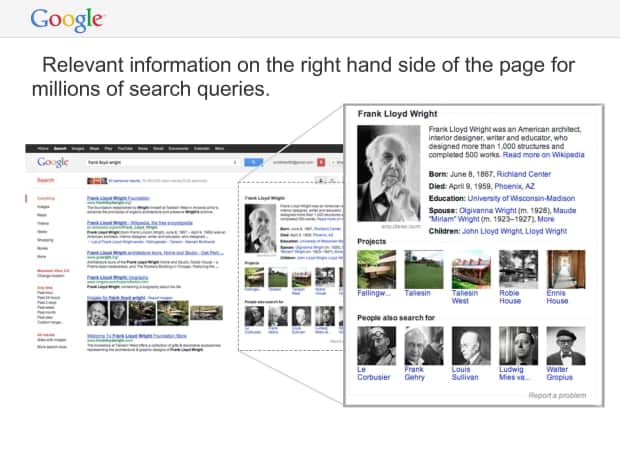Why is Schema Markup So Damn Important?

Google’s SERPs Are Changing… And So Should You!
Google’s algorithm is making a slow yet drastic change from a pure “keyword-index” based search engine, to a more user behavior, user intent and contextual data driven platform. Back in the “good-old-days” all you needed were enough relevant keywords to find what you wanted, but that obvious simplicity has changed.
There’s been a slow decline of long-tail queries being used…this is because Googles taking into considering contextual (implicit) data making your short-tail queries as effective as the longest query you can come up with. All in all, Google is transforming into a search engine that UNDERSTANDS what you’re searching for, rather than finding the most relevant indexed page based on a few words you type in. So thus, the importance of your explicit data (or keywords) is being diluted more and more – implicit data is taking over, and this helps the engine better UNDERSTAND the user’s intent and drive search satisfaction.
What can I do?? This is where schema and semantic markups come in.
There are 2 main reasons behind implementing semantic or schema markup.
-
Make Your SERP Listing Sexier
We’re seeing a more and more visual data being displayed on Google’s search engine results pages, you can see all these features on MOZ’s Mega SERP. If your page has recipes & nutritional info, event information, or even videos or reviews…you want that specific data to appear in the SERP as rich snippets (additional visual data). These rich snippets will help convince your searcher that you have what they’re looking for before they click on your link. All rich snippets being displayed in the SERPs enhance your page’s appearance relative to someone who doesn’t, and thus (possibly) increasing your CTR (click through rates).
And now Google’s Knowledge graph works by gathering structured data from crawled pages who use Schema.org markups. Once identified, they display the structured data to the right of the screen to add additional value to the user experience by supplementing search results with facts, images, and other visual enhancements; an impressive demonstration of what can be done when you have structured data about ‘things’.
Must Have Markups
- Authorship or publisher markup
- Reviews & aggregate review
- Breadcrumbs for SILOs
- Local business address information
- Corporation markup
- Facebook OG & Twitter cards
-
Help Google UNDERSTAND – User Intent and Searcher Satisfaction
Sure, keywords in a page will help you rank for what people are searching for, but Google doesn’t truly understand all the content being offered. All they see is keywords, and maybe some co-citations of contextual text. How does Google know that a searcher will truly be satisfied visiting your page?
Well there are a few tools out there that can help you get started with Schema, one of our favorites is Schema Creator by Raven Internet Marketing Tools. We love these guys and they did an amazing job on this!
Using proper schema markup will help ensure you get the right person looking for exactly what your page is about…SATISFYING THEIR SEARCH INTENT…all while making your page look more user “preferred” in google’s eyes.
With Schema’s growth, you can now markup nearly anything from medical procedures and how they’re performed, a person and almost any information about them (schools, awards, age, location) and much much more. For example, use a “person” markup for bio pages, and “location address” markups for contact pages.
See all the markups available on Schema.org. For example, use a “person” markup for bio pages, and “location address” markups for contact pages.



